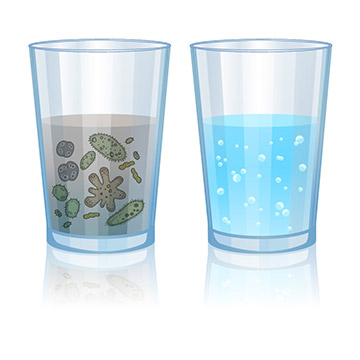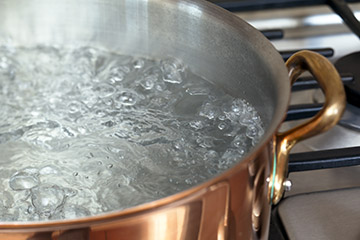What is cholera?
Cholera is an intestinal infection caused by the bacteria Vibrio cholerae. These germs can live in humans and some animals that live in water. Cholera is not common in Canada.
What are the symptoms of cholera?
- Nausea
- Vomiting
- In more severe cases, sudden onset of large amounts of painless watery stool (poop). If untreated, can lead to severe dehydration, low blood sugar in children, kidney failure, and even death.
Most people infected do not have any symptoms. Some may have mild to moderate diarrhea (loose poop) lasting 3 to 7 days. It can take from a few hours to 5 days after contact with the germ before you feel sick.
How does cholera spread?
Cholera is mostly spread by drinking and eating contaminated water and food (especially raw or undercooked shellfish, raw or partly dried fish). Water and food get contaminated by the stool of infected individuals.
It is more common in areas where hygiene and water treatment are poor. People who live in or travel to such areas are at a higher risk of getting the infection.

How long is it contagious?
A person can pass the infection to others as long as the germ is present in their stool. The germs can be found in the stool for a few days and up to 14 days after being exposed. It is possible, but rare, for the germs to stay in the stool for several months.
How is cholera treated?
If you or your child develops these symptoms, see your health care provider.
- For mild symptoms, drink plenty of fluids to stay hydrated.
- In severe cases of diarrhea, the greatest concern is the large loss of water and minerals that your body needs. Treatment in these cases may include rehydration therapy (having plenty of fluids to stay hydrated) and antibiotics (medications that kill bacteria).
How do I prevent the spread of cholera?
Ways to prevent infection include:
- Wash your hands often with warm water and soap, especially before and after preparing foods, before eating, and after handling diapers and using the washroom.
- Practice safe food handling, including storing, reheating, and cooking your food properly. Avoid raw and undercooked seafood. Peel fruits and vegetables before eating.
- Disinfect or boil drinking water (boil for at least 1 minute).
- If travelling, visit a travel clinic at least 6 weeks before to get vaccinated against cholera and other diseases that you may encounter during your travels.
- Disinfect soiled laundry or wash in boiling water for at least 5 minutes.

For more information contact the Health Unit or speak to your health care provider.
References:
American Academy of Pediatrics. (2018). Red book: 2018-2021 Report of the committee on infectious diseases (31st ed.). D.W. Kimberlin, M.T. Brady, M.A. Jackson, & S.S. Long (Eds.). Itasca, IL.
Heymann, D.L. (Ed.). (2015). Control of communicable diseases manual (20th ed.). Washington, DC: American Public Health Association.
Ontario Ministry of Health and Long-Term Care. (2014). Infectious Diseases Protocol: Appendix A – Cholera. Toronto, ON: Queen’s Printer for Ontario.

